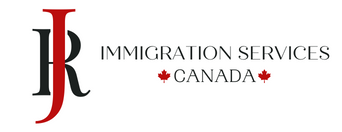Refugees in Canada may travel outside Canada; however, until they become Canadian citizens, there are some restrictions, and the correct documentation is required. Whether a refugee is privately sponsored, government-assisted, or determined to be a protected person within Canada.
Canada requires refugee travel documents to enable refugees, stateless persons, and people who need protection to travel outside of Canada; this includes a refugee travel document and an initial permanent resident card.
Cessation of refugee status can occur if you travel to your home country, however briefly, use the passport of your home country, or apply for a new passport from your home country.
Mandatory Travel Documents
Whether a resettled refugee, who often receives permanent residence status once arriving in Canada or a person determined to be a Protected Person refugee within Canada, the correct travel documentation is mandatory. A Protected Person is one who has been identified by the Immigration and Refugee Board as a Convention Refugee or has been approved by IRCC based on a Pre-Removal Risk Assessment. Protected Persons can apply for permanent residency.
A Refugee Travel Document lets refugees travel outside of Canada without a passport from their home country. You can travel to all countries except your home country. A Permanent Resident Travel Document (PRTD), or Form IMM 5529, lets permanent residents outside of Canada prove their immigration status when returning.
At JR Immigration, our immigration consultants can help you with every aspect of your refugee claim, including your application for a Refugee Travel document or initial permanent resident card.

Canadian Government-Issued Passport
If you meet the necessary requirements, you can apply for Canadian citizenship and then for a Canadian passport as a Canadian Citizen. Until then, whether or not you have permanent residence status, you must apply to the Government of Canada for a Refugee Travel Document to travel outside Canada.
Cessation and Loss Of Refugee and Permanent Resident Status
If you have come to Canada under a refugee resettlement program or have been recognized as a refugee, you cannot use your passport from your home country. In some cases, if you use your original country’s passport, your refugee status could be revoked.
The Canadian Government offers refugee protection to those in danger in their home country but has the right to remove refugee status if a refugee then accepts the protection of their home country. This is known as re-availment, and is a common cause for cessation of refugee status.
Cessation can occur if you travel to your home country, however briefly, use the passport of your home country, or apply for a new passport from your home country.
Your refugee status may not be immediately revoked; the Canada Border Services Agency will determine the actions to take. However, if it is revoked, you will automatically lose your permanent residency, too, if you were granted that previously.
Refugee Travel Document
A Refugee Travel Document allows travel to other countries, similar to a Canadian passport, but there are some important differences. Some countries allow Canadian citizens with a passport to enter without a visa, but do require a visa if you are travelling under a Refugee Travel Document. Always confirm the specific travel requirements of the country you are planning to travel to, for visa or other requirements.
Applicant Process
Processing times vary, so it is recommended to wait until you have received your document and any necessary visas before making specific travel arrangements.
To apply for your Refugee Travel Document, fill out the travel document application form for stateless persons and protected persons in Canada.
The issuing office will decide the validity period of your refugee travel document and determine your eligibility.
When applying for your Refugee Travel document, in addition to your form, you will need to submit photos, select the appropriate choice of travel documents, and select a gender identifier.
Re-entry Into Canada With A Permanent Resident Card
If you have permanent residence, a permanent resident card is needed for your return into Canada.
Your Permanent Resident card is your identification document and a mandatory travel document for Canadian permanent residents. It proves your permanent resident status. A valid PR card and permanent resident travel document (PRTD) are the only two documents allowing permanent residents to enter Canada on a commercial carrier.
Permanent Resident Card (PR Card) and Permanent Resident Travel Document (PRTD)
These travel documents identify you as a permanent resident of Canada. Canadian permanent residents need to carry and show their valid permanent resident card or PRTD when travelling to Canada, by air, train, bus, or boat. You are responsible for ensuring you have a valid PR card for your return into Canada and for applying for a new PR card before your existing one expires. They are valid for five years.
PR cards are the property of the Canadian government and must be returned if you are requested to do so.
If you were selected outside of Canada as a protected person, and resettled as a refugee in Canada, you will have been given a Confirmation of Permanent Residence document or a Permanent Resident Card. For an expired, lost or stolen permanent resident card, you need to submit an application for to Immigration, Refugees and Citizenship Canada (IRCC).
At JR Immigration, we can help you with your refugee claim and permanent residency process in Canada. We assist you throughout the entire process, including the hearing.
